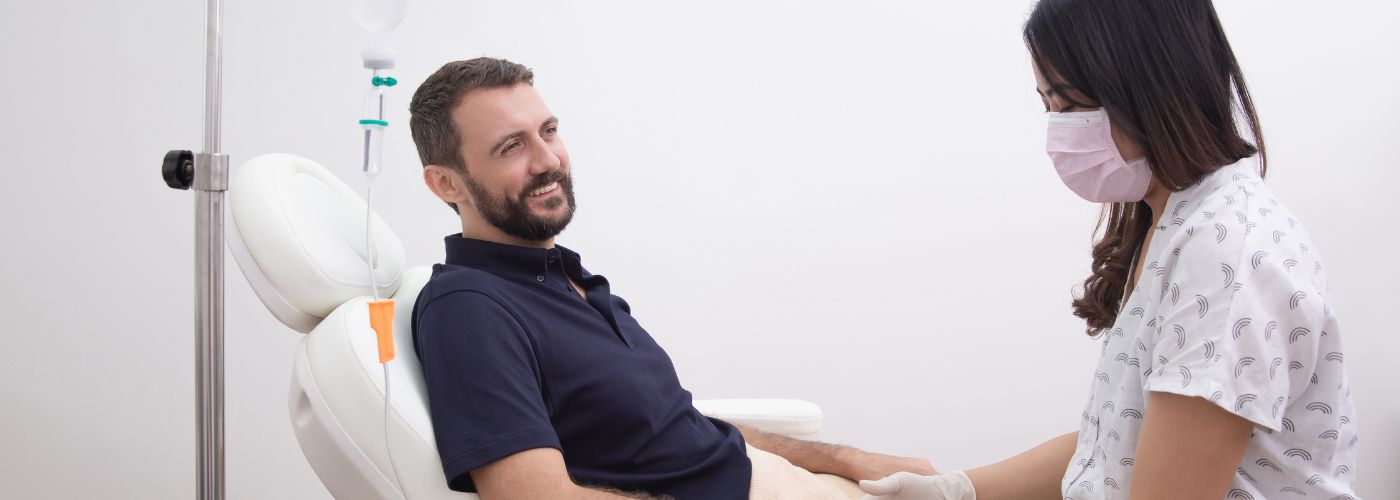Ketamine therapy is a treatment that uses the anesthetic drug, ketamine. It has shown promising results in treating depression, anxiety, and post-traumatic stress disorder (PTSD). However, it is not without its side effects. We’ll explore the pros and cons of ketamine therapy to help you decide if it is worth it.
What Disorders Can Ketamine Infusion Treat?

Ketamine is a medication that has been used for decades as an anesthetic. However, it has shown promise in treating many mental health disorders in recent years. Ketamine infusion therapy is a relatively new treatment option showing promising results in treating conditions like depression, anxiety, post-traumatic stress disorder (PTSD), and chronic pain.
Ketamine works by binding to the NMDA receptor in the brain. This receptor is involved in regulating glutamate, which is a neurotransmitter that plays a role in learning and memory. By binding to the NMDA receptor, ketamine prevents glutamate from being released. This action results in antidepressant and anti-anxiety effects.
Some patients undergoing ketamine therapy have noticed a difference in their energy, mood, and mental health after a few sessions. However, ketamine therapy is not FDA-approved yet since more research and studies need to be done on the drug.
This treatment is typically administered with an intravenous line connected straight to the bloodstream. This allows for a faster response within the body. Users may experience a sense of detachment during the ketamine therapy sessions.
How Long Does Ketamine Infusion Last

Ketamine infusion therapy is a type of IV therapy that may help those suffering from depression, anxiety, and other mental health disorders. But how long does ketamine infusion last?
A single ketamine infusion can last anywhere from 30 minutes to 2 hours. However, the effects of ketamine can last much longer. Some people report feeling the benefits of ketamine for up to 24 hours after their infusion.
Ketamine infusions are typically given 2-3 times weekly for the first month or two of treatment. After that, the frequency of infusions can be decreased to once per week or even less, depending on the individual’s response to treatment.
So, while a single ketamine infusion may not last very long, the overall effects of ketamine therapy can provide lasting relief from mental health symptoms.
However, this treatment is not for everyone. Always speak with your doctor first to see if this treatment suits you.
What Are Ketamine Infusions Used For
Ketamine is a medication used for human anesthesia and pain relief. Recently, ketamine infusions have become popular as a treatment for depression. When given intravenously, ketamine may produce rapid antidepressant effects.
There are several theories about how ketamine works to treat depression. One theory is that ketamine may increase brain-derived neurotrophic factor (BDNF) levels. BDNF is a protein that helps support neurons’ health and promote new nerve growth. Low levels of BDNF have been linked to depression.
Ketamine may also work by blocking NMDA receptors. NMDA receptors are involved in learning and memory but can also be overactive in people with depression, leading to negative thoughts and rumination. By blocking these receptors, ketamine may help to reduce negative thinking and improve mood.
What Does Ketamine Infusion Feel Like

Ketamine infusion therapy involves delivering the medication intravenously (through a vein in the arm) and can produce various positive and negative effects.
Patients undergoing ketamine infusion therapy often feel more relaxed, happy, and euphoric. Some also report experiencing hallucinations or dissociation (feeling disconnected from reality). These effects are usually short-lived, lasting only a few hours after the infusion. In some cases, however, patients may experience longer-lasting side effects, such as increased blood pressure and heart rate.
It’s best to first speak with your doctor for approval and on how to get ketamine IV therapy.
